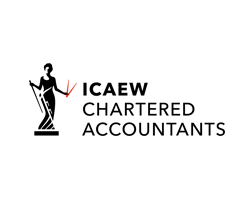August 27th, 2019Should I Incorporate My Property Business? Part VI
Journey’s end, or “time for a lie down”
We’re now at the end of our property odyssey. In Part I, we discussed why the incorporation of property businesses is on the rise and in Part II we covered the difficulties in undertaking a long term planning exercise.
Then in Parts III, IV and V we got into the nitty-gritty of each of the three phases of property ownership:
- Phase 1: The initial purchase or transfer
- Phase 2: Letting
- Phase 3: Retirement
How do we bring all of this together into a coherent strategy for attempting to answer whether incorporation is a good idea or not?
What we have established, in general, is that by incorporating your property business you will:
- Be worse off in phase 1
- Be better off in phase 2
- Be worse off in phase 3
There is a caveat in that if you are buying your first buy-to-let property then phase 1 is neutral, i.e. you’re no worse off buying the property in the company than personally.
So with this in mind we can say that if the total amount you are better off by in phase 2 is more than the total amount you will be worse off by in phases 1 and 3, then incorporation may be a good strategy.
Consider an example:
- It costs Max £10,000 to put his property into a company
- Max’s net savings of using the company during his working life will be £1,000 per year
- When Max retires at 67, he wishes to keep his property as a source of income. The company will be £1,250 per year more expensive than if he had continued to hold the property personally
- Max has 30 years until he retires
During the 30 years until retirement, Max will make total cost savings of £30,000. It cost him £10,000 to put the property into the company. At this point he’s still got £20,000 worth of cost savings. Once he retires, however, he will have eroded all of the remaining cost savings after 16 years.
Phase 4, or “don’t ask”
One area we haven’t touched on a great deal is that of inheritance tax. This is largely because the property forms part of your death estate whether held personally or in a company.
Property will only leave your estate if it is sold, gifted to somebody else or placed into trust and even with the last two there are special rules.
If you aren’t going to pursue any of these strategies, is there a way of avoiding inheritance tax on property by utilising a company? Possibly.
If you already have a trading business operating in a limited company then you may qualify for business property relief on property in that company. This relief would exempt the property from inheritance tax when the shares in the company are passed on to your next of kin.
The company would need to remain predominantly a trading business right up to your death so this strategy tends to only work when:
- The next generation also works for the company
- The trading income is higher than the rental income; and
- The net assets of the company are mostly generated by the trade
A “one man band” trading company may just about qualify for business property relief if they have only one property in the company but it’s far from guaranteed, especially if trading ceases upon retirement. As such this strategy tends to only work with larger companies.
There are other issues with having a mixture of trade and investment activity in your limited company, mainly the potential loss of entrepreneurs’ relief and becoming partially exempt for VAT. These issues can be mitigated in some cases by setting up a group structure.
This sort of strategy is reasonably risky, though, which is why it’s not been touted as a benefit of incorporation in the previous instalments of this series.
Is there another way?
So far, we have only considered two scenarios: holding property personally or holding it through a limited company. There is another option, that of a mixed partnership.
A mixed partnership is one that has at least one individual and one limited company as partners. They have been touted as a “best of both worlds” solution in that the benefits of personal ownership can be teamed with sheltering from higher rate tax and avoiding the interest relief restriction. It is also easier to add new partners and to vary profit shares than within a limited company.
Opinion is divided on whether mixed property partnerships achieve this in practice because HMRC hasn’t really gotten around to challenging such an arrangement yet. There is certainly scope within the General Anti-Abuse Rules to render mixed partnerships a very risky prospect, especially if the individual partners are also the shareholders of the limited company partner.
Mixed partnerships are, however, still a possibility and it would be remiss not to at least mention them.
In final conclusion
I hope at this point I’ve gotten across the complexity of property incorporation and that it isn’t a question that can be answered within 10 minutes of being posed.
The number of variables involved means that each landlord’s circumstances will be different and yield a different optimum strategy. Consider 10 variables that can be answered yes or no – for example, “Are you married?” or “Are you a higher rate taxpayer?” There are 1,024 ways in which those 10 questions can be answered!
Once you bear in mind that many of the variables we have discussed in this series have more than two answers, you can see that it is very difficult to formulate general strategies. Each landlord must be advised according to their own circumstances.
We can still help, though, so please do get in touch if you require assistance.
Back to Part V





